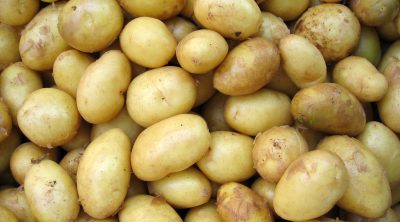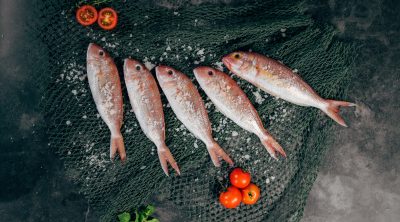Pasta has become a staple in many homes and restaurants. Would you believe that such a versatile food is made from just two simple ingredients? Flour and water or egg. Professional chefs will tell you that the correct way to cook pasta is “al dente”.
This means that the pasta itself is cooked but is still quite firm in the center. Once the pasta has been mixed with hot sauce, it will continue to cook a little more anyway, therefore it is best to cook it al dente. While there is no coming back from overcooked pasta, there are ways to fix undercooked pasta.
Contents
- How to fix undercooked pasta
- How should I cook pasta?
- How do I know my pasta is al dente?
- How do I fix undercooked pasta that has been mixed with sauce?
- Is undercooked pasta really that bad?
- Is chewy pasta undercooked or overcooked?
- Should I rinse pasta after cooking?
- Can I use a shallow pot to boil my pasta?
- Should I add salt to the pasta being boiled?
- How long should I boil my pasta?
- Will undercooked pasta make me sick?
- How should I store my leftover pasta?
How to fix undercooked pasta
If you haven’t added the sauce nor drained the boiling water yet, this is easily fixable. You can allow the pasta to boil a minute or two more and keep checking for doneness.
If you already drained the water, simply boil another batch although it would have been best if you managed to save a few of the salty water from before.
If sauce has already been added, continue cooking the pasta with the sauce in low heat for a few more minutes until al dente. Add a little water if you feel like it needs to simmer a bit more.
How should I cook pasta?
When boiling your pasta, use the biggest pot that you have. This way, overcrowding and sticking together of the pasta can be avoided. Fill your saucepan three-quarters full of water and add enough salt to flavor.
Only add pasta when the water is boiling. Finally, allow it to boil with the lid on until the pasta is al dente.
How do I know my pasta is al dente?
You can check the doneness by putting a piece between your teeth. If the pasta is cooked all the way through yet has a little bite, then it is al dente.
When al dente is achieved, remove the pot from the heat and using a colander, drain the pasta. Remember that the more pasta cooks, the gummier it gets. It is most likely overdone if the pasta sticks to the walls of the pot.
How do I fix undercooked pasta that has been mixed with sauce?
If you’ve already added the sauce and then discover that your pasta is undercooked, you can continue to cook the pasta and the sauce together for a few minutes. Make sure to stir the mixture gently so that it doesn’t stick to the bottom of the pot.
Be careful so as not to break the pasta up. If the sauce appears to be too thick, add a little extra stock or some of the pasta water that has been set aside. Bear in mind that as it finishes cooking, the pasta is going to absorb some of the moisture.
Is undercooked pasta really that bad?
Even though you have a delicious sauce, your entire dish can be ruined by undercooked pasta. Undercooked pasta is difficult to chew and swallow. It makes for an unappealing eating experience.
While it can be a bit of a problem, it can still be fixed by doing a few things. If you haven’t added the sauce yet, your undercooked pasta can still become perfect.
Is chewy pasta undercooked or overcooked?
Chewy pasta is undercooked. There is a chalky consistency in the middle of the pasta as you bite into it. Chewy pasta is roughly three minutes away from being that delicious al dente we love.
Should I rinse pasta after cooking?
If intended for a warm dish, never ever rinse pasta. The starch in the water helps the sauce adhere to your pasta so that the flavors of the sauce incorporate well into the pasta.
You should only ever rinse your pasta when you are using it for a cold dish such as a pasta salad. Alternatively, you may also rinse it if you are not going to use it immediately.
Can I use a shallow pot to boil my pasta?
Even if you only cook a small amount of pasta, it is best to use a big pot. If it is too small, some of the pasta at the top may stick out of the water and not properly boil.
If your pot is too small, the amount of water might be inadequate. The water will become starchy and cause the pasta to stick together. Nobody wants gummy or clumpy pasta, that is for sure.
Should I add salt to the pasta being boiled?
Because pasta dough does not come with added salt, it becomes necessary to add some salt to the boiling water to give the pasta some flavor. This also prevents the pasta from releasing too much of its starch and becoming sticky.
Depending on the size of your pot, you may use between a teaspoon and a tablespoon of salt.
How long should I boil my pasta?
While there is no standard time for boiling pasta, considerations include the shape of the pasta, how much you add to the pot, and whether you’re using fresh or dried pasta. It takes experience to perfectly cook pasta every single time.
Of course, it wouldn’t hurt to check on the state of the pasta from time to time. Generally, it only takes a few minutes for the pasta to cook. To prevent overcooking, test it every few minutes. If undercooked, allow it to boil for another minute or two.
Will undercooked pasta make me sick?
Undercooked pasta poses no immediate health risks. It won’t cause you to get sick unless you are allergic to gluten. Cooking pasta just makes it easier to digest and be broken down by the body.
The main danger of eating undercooked pasta is salmonella poisoning if the pasta you eat is made with raw eggs.
How should I store my leftover pasta?
If you plan on using pasta in more than a day or so, it is best to mix together the sauce and pasta so that the flavors penetrate the noodles. Add a little extra virgin olive oil as desired.
Keep the pasta with the sauce sealed in a container and refrigerate. Make sure to wait for the pasta to cool before closing the container, otherwise, the pasta would soften too much and become mushy.







Leave a Reply